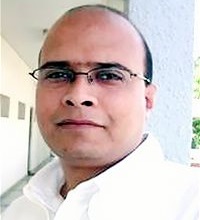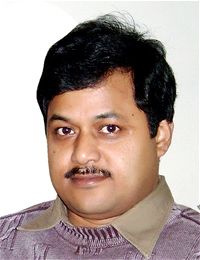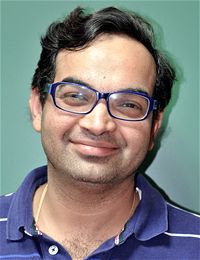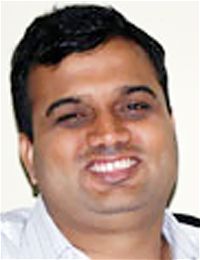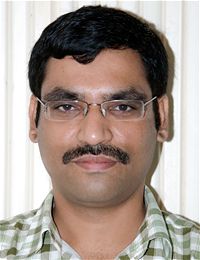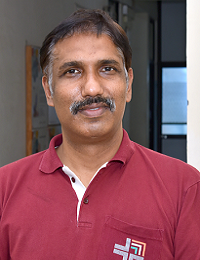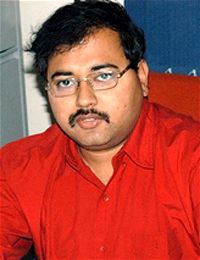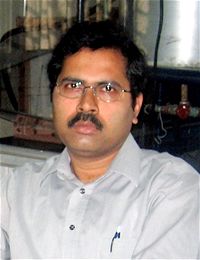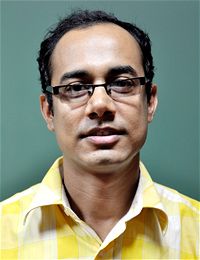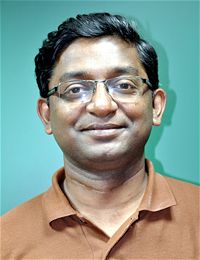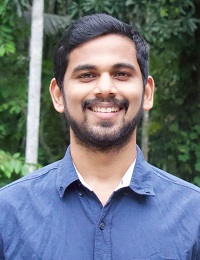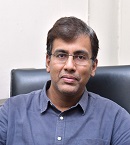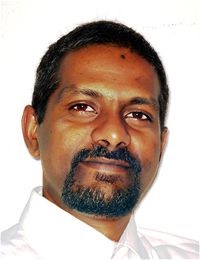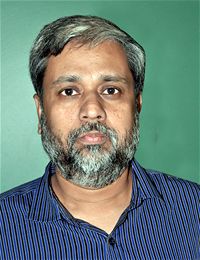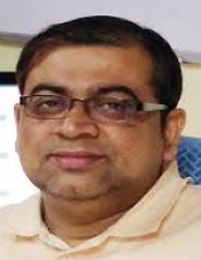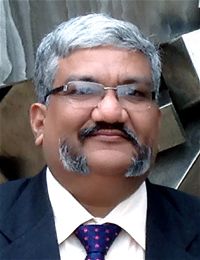Welcome Message

Welcome to the Department of Mechanical Engineering at IIT Kanpur. We started our journey in the year of 1960. Over the last six decades, we have grown our expertise and competence in the core Mechanical Engineering curriculum and research....
- Read More
-Prof. Ashish Dutta
Head, Department of Mechanical Engineering
Featured Faculty
Featured Research
Research activities in the Department of Mechanical Engineering are at the forefront of innovation, advancing knowledge and technological developments in the multifaceted disciplines of mechanical engineering, as well as in several cognate areas.
We conduct fundamental and applied research in broad areas of Mechanical Engineering, reaching well beyond traditionally identified domains. Current projects have an impact both locally and abroad, and cross disciplinary boundaries. With its signature research programs of national and international distinction, the department aims to make a positive contribution towards securing environmental, industrial, and societal sustainability. The diversity of research projects undertaken by our faculties is a measure of the strong track record of research. It is the result of the great synergy between the fundamental research and applied research done at our department.
Diverse Research Areas
Researchers are engaged in extremely diverse, and often inter-disciplinary projects that include probing the mysteries of a tiny cell to deciphering the Earth's geophysics; designing microfluidic sensors to developing the next-generation gas turbines; optimizing fuel cells to controlling nuclear plasmas to meet the nations' energy demands; estimating the strength of tangled polymer chains to employing sturdy composites for aerospace structures; harnessing the solar power to designing cleaner combustion devices for a pollution-free environment; understanding human origins to building humanoid robots. The opportunities and challenges are endless!
Research Environment
Research at our department is usually done by small individual led research groups and there are also large interdisciplinary project teams across several departments. The research environment supports highly creative work done by a small group. The department promotes research opportunities for undergraduate and postgraduate students by fostering an environment of discovery and creativity through resource allocation, mentoring, and recognition.
Faculty and students at IITK respect the fact that to do path-breaking research, in addition to knowledge about an area; one requires creativity, self-belief, courage and persistence. Great research requires risk taking ability. The IITK culture offers support and encouragement to take on challenging work. This enables researchers to work on the important problems in their field. The strong institutional support enables the researchers to ask tough questions knowing that finding the answers will take time and effort.
Strong Research Collaboration
Due to the vibrant research environment at IITK, there is regular exposure to new ideas, which helps young researchers to identify the current research thrust areas. Faculties often collaborate with other academic disciplines, Indian and foreign universities, research centres, and industry.
Independent Research
Quality research happens more often in a culture where free thinking is encouraged and that is very true for most of the departments at IITK. The researcher is supported by a dynamic research administration that has a non-bureaucratic work culture. The drive and commitment for research are sustained because at IITK, a researcher can enjoy the research work to the fullest.
Interdisciplinary Research
The department's initiatives are highly collaborative and multidisciplinary, involving researchers from most of the engineering streams, the physical and life sciences. There are inter-disciplinary academic programmes and inter-disciplinary research centres & facilities at IITK. These lead to great interdisciplinary interaction at IITK and facilitate collaboration for interdisciplinary research.
Teaching & Research
The teaching done by faculty helps the faculty grow. The faculty is encouraged to develop new courses based on their research. The faculty also have the freedom to modify existing courses to include content related to their research. The faculty benefit from the dedicated PhD students of IITK, who is a key to the success of research at IITK. At IITK, young faculty can start teaching early in their career, and this enhances their ability to do challenging research.
The Doctor of Philosophy (PhD) degree is the highest degree awarded by the Mechanical Engineering Department and is recommended for students who are interested in leadership careers in academia (e.g., as a faculty member of a university), industry, or government. Its focus, unlike regular degrees, is not learning existing knowledge but creating new knowledge.
No wonder, PhD is desired by anyone wishing to 'make a mark' - the brightest seek it as it allows challenges that no other degree does; the innovative desire it as it allows the possibility to innovate and create new knowledge and technologies; the ambitious seek it as it is the top of the academic ladder; and the persistent seek it as this is the one degree where persistence and self discipline are brought to full use.
The PG program for PhD Degree has the following broad streams:
- Fluid Mechanics and Thermal Sciences
- Manufacturing Science
- Robotics and Automation
- Solid Mechanics and Design
Students entering the PhD program with a Master's degree usually complete the PhD program in 4-6 years, while students who enter the direct PhD program with a bachelor's degree finish in 5-6 years.
Programs Structure
The PhD program is designed to equip the student with general proficiency in a stream through the course work.
Course Work: A PhD student with a Master’s degree is required to take a minimum of 6 courses, whereas, a direct PhD student takes a minimum of 10 courses. He may, upon consultation with his thesis supervisor, take more courses as needed to carry out his thesis work.
Comprehensive Exam: Within 6 months of completion of course work, the student is require to clear the comprehensive examination. This examination is in both the written and the oral form and is designed to judge the overall comprehension of the student. More details on comprehensive examination are available (here).
State-of-the-art Seminar: The student is required to present his research problem along with the necessary literature survey within 6 months of the comprehensive examination date.
Open Seminar: After finishing his thesis work, the student has to present it before the department. Only after his thesis work has been cleared from the department, he is allowed to submit it.
Defense: After review from the referees, the student is allowed to give defense of his work.
The Master of Technology in Mechanical Engineering is comprised of rigorous coursework followed by a full year of research. Courses often include advanced level group projects and/or individual research project.
In addition to management, communication, team work and research skills, each student will attain at least the following learning outcomes from this degree course:
- Demonstrate a depth of knowledge of Mechanical Engineering
- Complete an independent research project, resulting in at least a thesis publication, and research outputs in terms of publications in high impact factor journals, conference proceedings, and patents
- Demonstrate knowledge of contemporary issues in their chosen field of research
- Demonstrate an ability to present and defend their research work to a panel of experts
Programs Structure
In the M.Tech. Program, the emphasis is on the development of a broad background in a particular stream followed by a deeper study of a problem in the stream. Every student is required to take a minimum of 8 courses of which 3 or 4 (depending on the stream) are compulsory to be taken mostly in the first semester. In the second semester, the student takes mostly the elective courses and the remaining compulsory courses, if any. The elective courses are chosen in consultation with the thesis supervisor to match the student's interest as well as his thesis requirements. The third and fourth semesters are dedicated for the thesis work.
The residence requirements for M.Tech program is four semesters. However, it is possible to get permission to spend one semester elsewhere. If someone wants to carry out the thesis work in a company, or at some other educational institution, it is allowed by the Institute. The maximum time one can spend in the M.Tech program is four years. We also have a part-time M.Tech program for working professionals. These students will register for six semesters. It is possible to convert one's status from full-time to part-time and vice-versa.
The Bachelor of Technology - Master of Technology (B. Tech.- M. Tech.) in Mechanical Engineering is a five-year program comprising of ten semesters. Both the degrees and B. Tech. for those students who do not meet the academic requirements for the award of M. Tech. degree, are awarded at the end of five years or whenever the requirements have been completed thereafter.
Students of the B. Tech.- M. Tech. (Dual degree) program spend their first seven semesters doing undergraduate courses together with the students of the B. Tech. program, while the last three semesters are spent doing postgraduate courses together with the students of the M .Tech. program. At the end of five years, they graduate, receiving both B. Tech. and M. Tech. degrees together. There is no option of early exit with a B. Tech. degree only. Students in this program who have good academic performance are given a scholarship in the final year, which is on par with that given to students of M. Tech. program.
The B. Tech. - M. Tech. dual degree program has been designed to make it attractive for a good student to do an M. Tech., and thus contribute to the research efforts of the department. The student benefits by getting an M. Tech. degree with just one year of extra effort, thereby saving at least six to twelve months.
The current B. Tech. students, both from Mechanical Engineering and outside Mechanical Engineering, are allowed to change to dual degree M. Tech. program in Mechanical Engineering.
The Bachelor of Technology (B. Tech.) in Mechanical Engineering is a 4 year program comprising of 8 semesters.
The undergraduate degree programs in Mechanical Engineering have a strong flavor on design and hands-on experience. The programs include a deeper study of a number of engineering sciences to which students are introduced at the core curriculum level, theoretical and experimental solution of physical problems, and design of systems relevant to the contemporary industries. The areas introduced by the department include Energy Conversion and Power Systems, Heat Transfer and Fluid Mechanics, Mechanics of Solids, Manufacturing Science, Industrial Engineering, Automatic Controls and Engineering Design and Optimization. Besides the theoretical and laboratory based curriculum, students complete an advanced design project in the final year of the program.
Minimum credit requirement for graduation
- Institute Core (IC): 124 Credits
- Department Compulsory (DC): 101Credits
- UGP-2 and UGP-3: 15 Credits
- Department Elective (DE): 27 Credits
- Open Elective (OE): 54 Credits
- ESO/ SO: 55 Credits
- HSS (Level-I): 22 Credits
- HSS (Level-II): 27 Credits
Remarks:
- UGP-2 (ME451A) and UGP-3 (ME452A) are departmental compulsory courses for B. Tech. students. However, these are optional for BT-MT students who apply for conversion to BT-MT program before the end of the sixth semester. Such students may do any two DE PG courses as substitute for UGP-2 and UGP-3. If a student opts to take ME451A or ME452A after applying for the dual degree programme before the end of the 6th semester, these courses WILL NOT count towards his/her DE-PG requirement .
- Students registering for ME451A (UGP-2) must form BTP groups and inform Convener, DUGC, by April 30th of 6th Semester.
- ME students applying for BT-MT in ME after the formation of BTP groups will have to take UGP-2 and UGP-3. Neither of these courses may be dropped. Out of UGP-2 and UGP-3, only UGP-3 may be counted towards DE-PG credits for these students.
- UGP-1 & UGP-4 are optional and do not count towards graduation requirements.
- 15 credits of UGP-2&3 and 18 OE credits may be waived from the minimum BT requirements for students opting for dual degree in ME itself.
- Up to 36 OE credits may be waived from the minimum requirements for students opting for Dual Degree in any other department or the Double Major programme.
Highlights
- List of candidates from CFTI selected for provisional admission for PhD program in Mechanical Engineering for the session 2025-26-I.New
- Department of Mechanical Engineering, IIT Kanpur Presents 2nd Mechanical Sciences Young Investigators Meet MSYIM 2025 17-19 March 2025. Visit the website for more details: MSYIM 2025
- Guidelines for the Application of Institute Post Doctoral Fellows
- Applications invited for direct PhD students for the semester 2025-26-I. Last date of application February 20, 2025
- List of Selected candidates: Winter PG Admission 2024
- Candidates Shortlisted for Interview: Winter Admission PhD Programme 2024
- Dates for PhD winter admission 2024 written exam and interviews: November 27-28, 2024
- Reporting date of all new PG students: Jul 18 - 19, 2024
- Departmental Orientation of new PG Students: Jul 20, 2024, 2:30 PM onward, Venue: L16
- PhD admission (Round 2): Application form available here. Last date of application: 4th July 2024. Online written test: 7th July, 2024, Online/Offline Interviews: 10th July, 2024
- M.Tech. Admission (through COAP): Cutoff score, Vacancy and fee paid data
- Selected candidates for provisional admission in PhD programme
- Selected and WL candidates for MS(R) admission (Institute-sponsored category) Round 1
- Rolling advertisement for faculty recruitment






